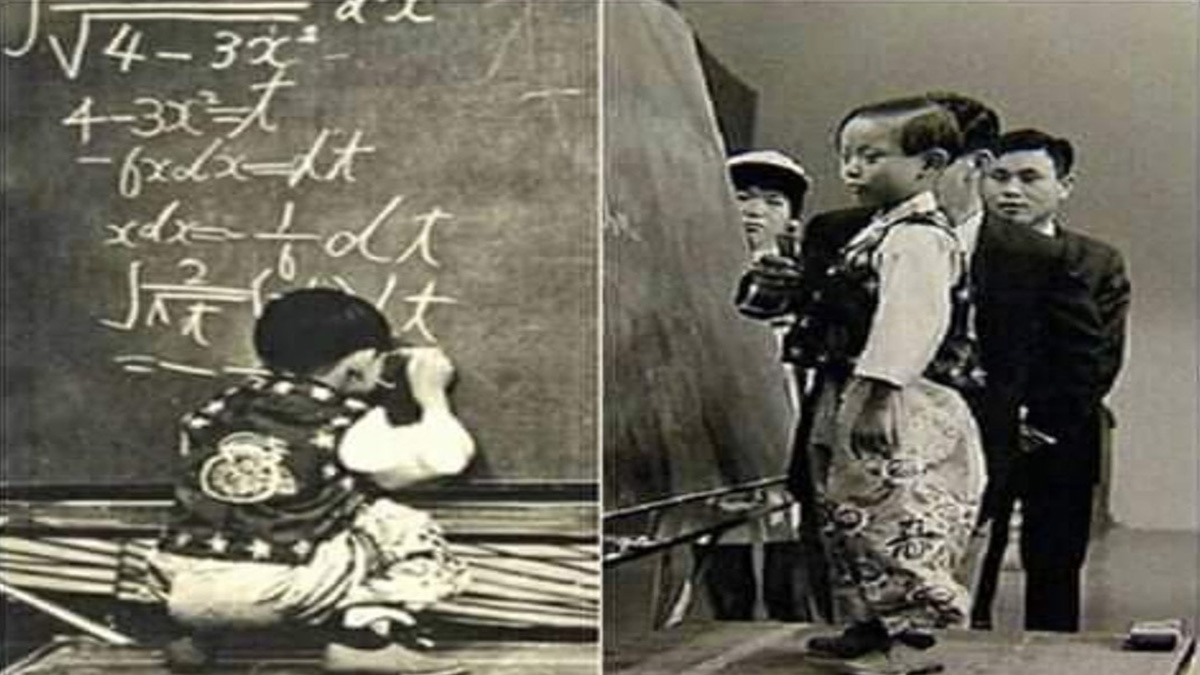The phrase “child prodigy” is often heard, although many of these children end up unable to bear the pressure they are subjected to. However, Kim Ung-Yong seemed to have everything to cope with, even working at NASA.
However, the history of this extraordinary man is full of ups and downs, and although he achieved impressive feats, his name is hardly recognized today. What happened to the South Korean genius?
Kim Ung-Yong, the Birth of a Prodigy

The son of a chemistry professor and a professor at Seoul National University, Kim Ung-Yong seemed to have everything he needed for a successful academic career. However, no one could imagine how he would develop.
He was born on March 8, 1962, in Seoul, and just a year later, Kim already mastered both the Korean alphabet and more than 1000 Chinese characters. At age 3, he was solving calculus problems and even published a 247-page book of essays, calligraphy, and illustrations in both English and German.
Soon, international attention focused on him, and by the age of 5, he was fluent in 5 languages: Korean, Japanese, English, German, and French. He even attended a physics class at Hanyang University.
It was clear that Kim Ung-Yong was a boy with an unusual intellect, and in his hands, he could have the possibility of influencing history.
One of the Best Intellectual Coefficients

At 4 years of age, the child stunned the experts by scoring 210 on an IQ test for 7-year-olds. This feat led him to obtain the highest IQ in the world according to the Guinness Book, although Marilyn vos Savant would take his position soon after.
This boosted his reputation, especially when he demonstrated his mathematical skills on Japanese television. On Fuji TV, at only 5 years old, Kim Ung-Yong solved complex problems of differential and integral calculus.
The impeccable demonstrations attracted the attention of one of the most important scientific organizations in the world: NASA.
At only 8 years old, the American Space Agency recruited him. This was an unprecedented fact that he had to take advantage of, so he worked with them for a decade. During that time, he amazed his colleagues with his exceptional memory and his ability to solve complex mathematical problems.
But working at NASA wasn’t as fascinating as he thought, and his new life wasn’t easy. He began to feel lonely and isolated, only talking to his adult co-workers, as he had no friends of his age, and, to top it off, they were always busy.
Despite being a teenager, Kim Ung-Yong made many important contributions to NASA. But eventually, he became disillusioned with his work, claiming that he felt his research was being used for destructive purposes and that his bosses took credit for his ideas.
Feeling contempt and rejection, he decided to return to Korea in 1978 to finish his studies. He earned his high school degree in just 2 years, then enrolled in the regional university and studied civil engineering.
Many people believed that his departure from NASA was a waste of his talents and, despite his achievements, began to criticize him.
Life as a “Failed Genius”

At the end of his PhD, Kim Ung-Yong obtained a discreet position at a Korean company called Chungbuk Development, where he worked as an intermediate manager. Gone was the child prodigy, criticized and called a “failed genius” for not meeting the expectations around him. Still, he remained optimistic and was happy in his “new” life.
In 2007, he worked as an assistant professor at Chungbuk National University and, in 2014, fulfilled his dream of becoming a professor. He joined Shinhan University at the age of 51.
The only extraordinary thing that can be read on his resume was his internship with NASA; otherwise, it looks like an ordinary resume. However, Kim Ung-Yong was satisfied; He had prioritized his happiness over “success.”
Even though many continue to see him as a failure, this person left an important legacy: nothing is worth the glory if you are not happy. Kim had everything to be considered a genius, but he prioritized his own happiness through a quiet life.

